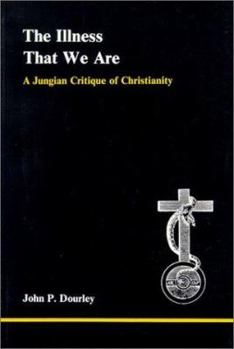Illness That We Are
(Book #17 in the Studies in Jungian Psychology by Jungian Analysts Series)
Select Format
Select Condition 
Book Overview
A Jungian Critique of Christianity This description may be from another edition of this product.
Format:Paperback
Language:English
ISBN:0919123163
ISBN13:9780919123168
Release Date:January 1984
Publisher:Inner City Books
Length:121 Pages
Weight:0.44 lbs.
Dimensions:0.4" x 5.9" x 8.7"
Customer Reviews
1 rating
Brilliant, honest, moving
Published by Thriftbooks.com User , 15 years ago
This little book -less than 120 pages long- is a jewel by any standard. I have to say I was raised as a Roman Catholic however convinced as an adult that Christianity has become an empty shell, being in the process of irreversible decay despite some sincere commitments of many of its adherents worldwide. Not that this book, written by a RC priest, changes this sad impression on me rather the surprise consists in discovering it contains a lucid explanation on why Christianity has arrived at this deteriorated stage. The book title "The Illness that We Are" refers to organized, institutional religions, pastors an vicars included whom, instead of recognize divinity and the focal point of their cult as a deep shared psychic /psychological feature embedded in human experience of the self, place both divinity and its focal point (the figure of Christ in this case) as an historical transcendent events exogenous to humanity, splitting once and for all the human and the divine and in doing so pushing the community of believers to live a kind of schizophrenic existence (my words, not Dourley's) where reason and faith are locked in a never ending battle. Reform Christianity with its distrust of symbols and rationalistic propensity sooner or later give way to science and scientism, conceding both the upper hand and finally surrender to a grammar that they master better than a religious movement tilted to a more secular, earthly orientation (no wonder -I must add- that nowadays there is a surge in Anglophone countries of "let's deconstruct God literature" supported by writers akin to scientism -such as Dawkins or Dennett- more likely to win a decisive battle because the terms of the debate are in their side). Roman Catholicism in the other hand, with a theological tradition where Aquinas weights more than St. Augustine, has lost profundity and introspection, and in that extent forgot the immanent nature of its symbols, to the point that they have become meaningless and almost impossible to reconcile with the modern mind; insisting that those symbols have to do more with an external, transcendent reality than with a deep human physic dynamics, RC has become the taxidermist of those symbols, taking away both its life and its truth because has forgotten where they come from: an everlasting wellspring hidden in the shared unconscious of human nature. That's why John P. Dourley takes the deep insights of Jung on the subject as a vehicle to make a diagnosis on the conundrums that Christianity faces. However this lucid analysis does not stop here, because Dourley realizes that any religion -specially those monotheistic ones, including of course Judaism and Islam- placing all the stakes on transcendence and revelation are trapped in an overemphasis on faith in the same extent that they dismiss human psychic life, taking the path of violence as an option, acting as a source of irreconcilable division amongst human beings or propelling their followers and vicars to





